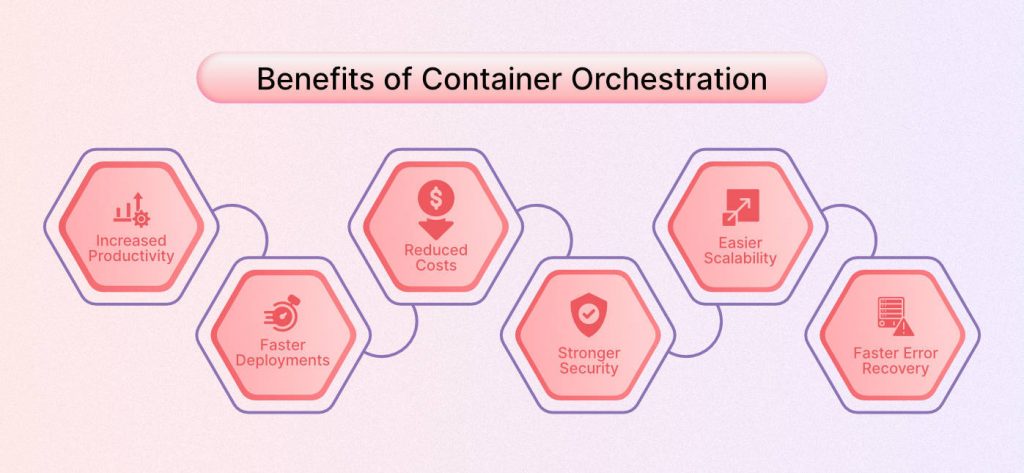Benefits of Containers
In this article, we will explore the numerous benefits of containers and how they can revolutionize the way we develop, deploy, and manage applications. Containers have gained immense popularity in recent years due to their ability to provide a lightweight and portable environment for software applications.
Efficient Resource Utilization
One of the key advantages of containers is their efficient resource utilization. Unlike traditional virtual machines, containers share the host operating system’s kernel, resulting in lower resource overhead. This allows for higher density of applications on a single server, leading to cost savings and improved scalability.
Isolation and Security
Containers provide a high level of isolation, ensuring that applications and their dependencies are encapsulated within their own runtime environment. This isolation enhances security by preventing conflicts between applications and mitigating the risk of vulnerabilities spreading across the system. Additionally, containers can be easily sandboxed and restricted, reducing the attack surface and making them an ideal choice for deploying microservices.
Portability and Consistency
Containers offer excellent portability, allowing applications to run consistently across different environments, such as development, testing, and production. With containers, you can package an application along with its dependencies, configuration files, and libraries into a single, self-contained unit. This eliminates the “it works on my machine” problem and ensures consistent behavior regardless of the underlying infrastructure.
Rapid Deployment and Scaling
Containers enable rapid deployment and scaling of applications. With container orchestration platforms like Kubernetes, you can easily deploy containers across a cluster of machines, automatically managing their lifecycle and scaling based on demand. This agility and flexibility make containers an ideal choice for modern, cloud-native applications.
Improved Development Workflow
Containers streamline the development workflow by providing a consistent environment for developers. With containerization, developers can package their applications with all the required dependencies, ensuring that the development environment closely matches the production environment. This reduces the likelihood of dependency conflicts and allows for faster and more reliable development cycles.
Cost Efficiency
Containers offer cost efficiency by maximizing resource utilization and minimizing infrastructure requirements. With containers, you can achieve higher density of applications on a single server, reducing the need for additional hardware. Moreover, containers can be easily scaled up or down based on demand, allowing for efficient resource allocation and cost optimization.

Containers provide a wide range of benefits, including efficient resource utilization, isolation and security, portability and consistency, rapid deployment and scaling, improved development workflow, and cost efficiency. By leveraging containers, organizations can optimize their application deployment processes, enhance security, and achieve greater agility in today’s fast-paced digital landscape.
Frequently Asked Questions – Benefits of Containers
1. What are containers?
Containers are lightweight, isolated environments that package software and its dependencies, allowing applications to run consistently across different computing environments.
2. What are the main benefits of using containers?
Containers offer benefits such as improved portability, scalability, resource utilization, and simplified deployment and management of applications.
3. How do containers improve portability?
Containers encapsulate applications and their dependencies, making it easier to move them between different operating systems, cloud providers, or development environments without compatibility issues.
4. How do containers enhance scalability?
Containers enable applications to scale horizontally by allowing multiple instances to run concurrently, distributing the workload and improving performance without the need for additional hardware.
5. How do containers optimize resource utilization?
Containers share the host system’s OS kernel, which reduces overhead and allows for efficient use of system resources. They also start up and shut down quickly, minimizing idle resource consumption.
6. How do containers simplify deployment?
Containers package applications and their dependencies into a single unit, making deployment consistent and repeatable across different environments. They eliminate compatibility issues and streamline the deployment process.
7. How do containers improve application management?
Containers provide a standardized way to manage applications, allowing for easier updates, rollbacks, and version control. They also facilitate easy integration with orchestration tools for automated management.
8. Can containers improve security?
Containers offer improved security by isolating applications from each other and the host system. They provide a boundary that prevents unauthorized access and limit the impact of potential vulnerabilities.
9. Are containers suitable for microservices architecture?
Yes, containers are well-suited for microservices architecture. They enable the development and deployment of individual services as independent containers, making it easier to scale, update, and maintain microservices-based applications.
10. Can containers be used in both development and production environments?
Absolutely! Containers are widely used in both development and production environments. They ensure consistency between development, testing, and production, reducing the chances of issues arising during deployment.




